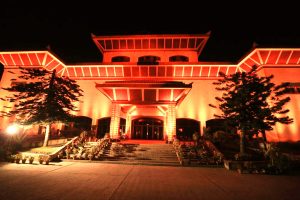By Sudha Ramachandran

On February 23, a five-member constitutional bench of the Nepal Supreme Court decided unanimously to reinstate the lower house of the country’s parliament. It ruled that the dissolution of the house in December 2020 was “unconstitutional” and called for reconvening parliament within 13 days.
The ruling is a huge setback to Prime Minister Kharga Prasad Sharma Oli. It was on Oli’s recommendation that President Bidya Devi Bandhari dissolved the house and called for fresh elections in April-May. The decision was widely criticized in Nepal and had sparked mass protests by political parties and civil society activists.
The apex court’s ruling overturning Oli’s controversial decision has been widely welcomed. “By passing a judgment in favor of the constitution,” the Supreme Court has “stood by the people, and re-established the notion of an independent judiciary,” the Kathmandu Post said in an editorial.
Indeed the court decision is a triumph for the constitution and enhances the stature of the judiciary. However, it is unlikely to end the political uncertainty in the country. There is little clarity in what lies ahead.
Pressure is mounting on Oli to step down, but he is unlikely to do so. It is likely that he will have to face a no-confidence motion in parliament when it reconvenes on March 8.
As things stand, Oli will not survive a no-confidence vote on his own.
Although the Nepal Communist Party (NCP) has 174 seats in the 275-member house, the party has split into two factions – one led by Oli and the other by Pushpa Kamal Dahal and Madhav Kumar Nepal. The Dahal faction claims it has the support of 90 legislators, which means that the Oli faction controls only around 84 seats.
Oli will need the support of more legislators or other parties to win the floor test.
Both factions have already reached out to key opposition parties including the Nepali Congress (NC) and the Janata Samajbadi Party (JSP), which have 63 and 32 seats, respectively.
Both factions are reported to have offered Nepal Congress chief Deuba the post of prime minister.
As the kingmaker, the NC is in a comfortable position.
But it is divided too over the strategy to adopt in the current crisis. The divide is basically over the response to Oli.
While senior NC leader Ramchandra Poudel has been vociferous in his criticism of Oli, Deuba has preferred a soft approach. The difference in their approaches to Oli was evident, for instance, soon after Oli dissolved parliament. While Deuba preferred a one-day protest against Oli’s decision, Poudel favored sustained agitation over several days.
In the wake of the Supreme Court ruling, the Poudel-led group reportedly prefers a wait and watch approach. It would like the NCP split to be formalized before the NC decides on its future course of action.
Although the NCP has divided into two factions, the split is not legal yet. Both, the Oli and Dahal factions of the NCP have laid claim to being the official NCP, but the Election Commission is yet to rule on the matter.
Apparently, NC leaders have not ruled out the possibility of the two factions coming together and hence would prefer to wait for the formalization of the split before making their choices.
Indeed, efforts are on to bring the NCP’s rival factions together. NCP Vice Chair Bamdev Gautam met Dahal and other leaders soon after the court verdict to prevent a formal split.
The majority in the NC are reportedly opposed to backing Oli. Indeed, many are opposed to the NC joining any government.
But will Deuba, a four-time prime minister, be willing to forego another stint at prime ministership? That remains a key question ahead as the political crisis in Kathmandu continues unabated.
No comments:
Post a Comment